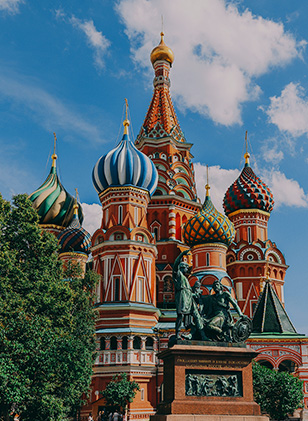Evacuations from High-Risk Locations Call +44 (0)1202 308810 or Contact Us →

Russian Opposition Leader, Alexei Navalny Found Guilty of Embezzlement – Security Advice on Travel to Russia
17 Feb 2017
Alexei Navalny has been found guilty of embezzlement and sentenced to a five-year suspended sentence. Navalny has vowed to continue his campaign for president and appeal against his guilty verdict.This seems like an attempt by Vladamir Putin to increase his grip on power.
Key Points
- Opposition leader and lawyer Alexei Navalny has been found guilty of embezzlement and sentenced to a five-year suspended sentence.
- Navalny has vowed to continue his campaign for president and appeal against his guilty verdict.
- This seems like an attempt by Vladamir Putin to increase his grip on power.
Situation Summary
Political: Opposition leader and lawyer Alexei Navalny has been found guilty of embezzlement and sentenced to a five-year suspended sentence. The conviction relates to a timber company called Kirovles, he was also handed a 500,000-rouble ($8,500) fine. The sentence comes as a result of a retrial, the European Court of Human Rights had ruled the first trial to be unfair. The conviction is set to bar the activist from running for president in 2018. In December 2016, he announced his intention to run in the election. Navalny has denied the charges and vowed to run in the election regardless. He has claimed that under Russian law, anyone not serving a jail term can legally run for president, though this remains unclear. He has claimed that he was only convicted after a telegram sent by the Kremlin.
Solace Global Security Comment
Navalny’s conviction is undoubtedly politically-motivated. Regardless of whether a Kremlin telegram was sent to Kirov (the site of the trial), it seems likely that the Kremlin was making moves behind the scenes to ensure a victory for the regime. Alexei Navalny is one of the greatest threat to Putin’s leadership ever. This conviction, despite its suspended nature, is a move by Putin, or those loyal to him, to control a key opposition figure. Navalny became an important political figure in 2008 when he began a blog which highlighted corrupt practices at Russia’s large state-controlled corporations. He has described President Putin’s United Russia party as a “party of gangsters and thieves”. Corruption is still rife in Russia and involving the leadership in particular. Putin and his associates were implicated in the recent release of the ‘Panama Papers’ and Transparency International ranked Russia 131st (out of 176). The former, especially, has caused great embarrassment to President Putin.
While opinion polls do not currently suggest that he would defeat Putin in a potential vote, his presence on the ballot would likely cause a great deal of annoyance to the powers in the Kremlin. When he was found guilty in the original 2013 case, opposition supporters and police clashed across the country, especially so in Moscow and St Petersburg. Further clashes are possible in the immediate and long-term future.
This is not the first example of the Kremlin allegedly being involved in silencing its critics. Vladimir Kara-Murza, a vocal critic of Putin and a journalist and author, was rushed to hospital in May 2015 after suffering a sudden illness. Doctors reported that he suffered kidney failure and Kara-Murza alleges he was poisoned. While he survived, the leader of the RPR Parnas Party (to which he belonged) was not so fortunate. Former deputy prime minister and staunch Putin critic, Boris Nemtsov, was killed days before he was due to lead a major opposition rally. In February 2015, he was shot four times in the back by a passing car while walking in Moscow. Alexander Litvinenko, a former KGB agent, was fatally poisoned with radioactive polonium-210 in London in 2006. His death is also believed to have been politically-motivated. The lawyer and auditor Sergei L. Magnitsky, was jailed on tax evasion charges in November 2008 after investigating a $230 million government tax “refund” that Russian officials had granted to themselves. He was reportedly tortured while in custody and died in 2009, having been denied medical care. The above reports are examples of a number of known cases of the current Russian leadership
SECURITY ADVICE
PoliticalModerateDue to the potential for civil unrest, it is advisable for travellers to maintain an enhanced level of situational awareness at all times. Travellers should avoid large crowds and demonstrations as they have the potential to turn violent. Police have been known to use extreme tactics during such events. In the longer-term, it would be advisable to avoid all but business-critical travel to major Russian cities during the election.
Solace Global Risk Management would advise clients to employ enhanced security measures when visiting Russia. This includes an airport meet and greet, a security driver for the length of a visit (in a low-profile vehicle), extensive journey management planning, and the use of a travel tracking and intelligence platform.
Solace Global’s Travel Risk Management Platform; Solace Secure combines real-time intelligence and travel tracking technology – providing situational awareness of vicinity security risks as well as 24 hour access to a security operations centre who are available for security advice or crisis management. The risk management technology helps fulfil employer duty of care and informs and reassures travellers have constant access to an expert security response team with a global security reach.